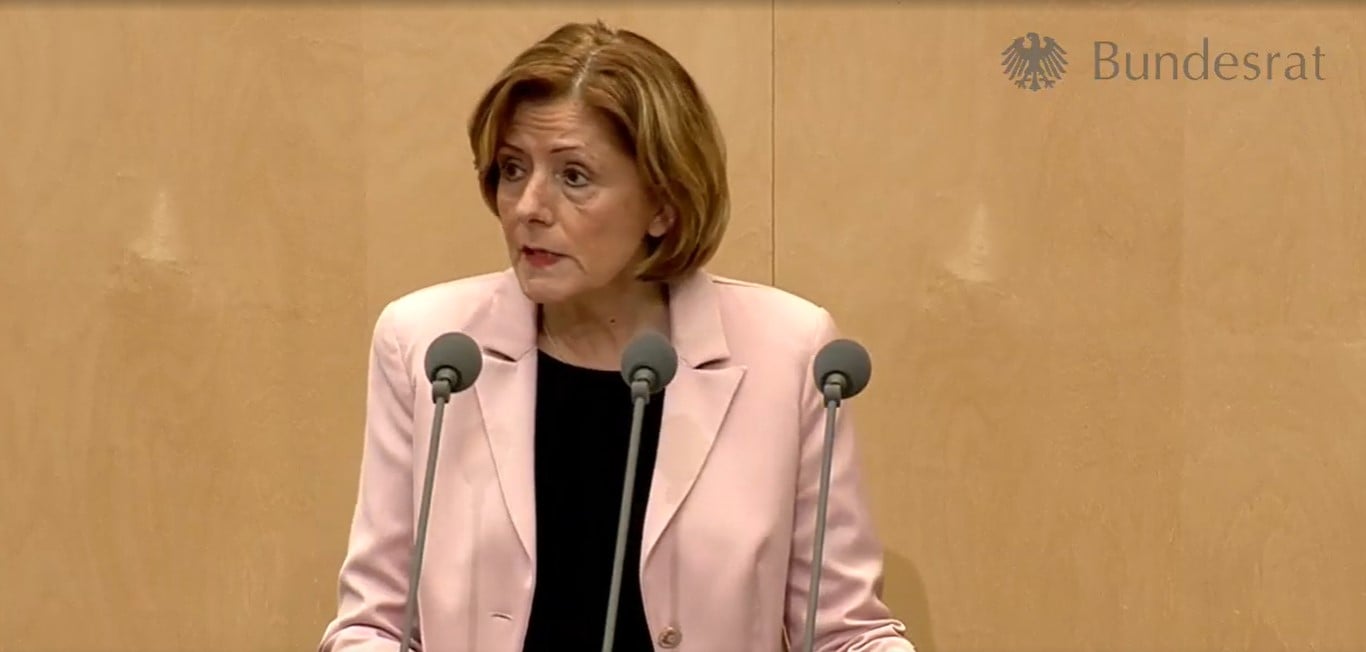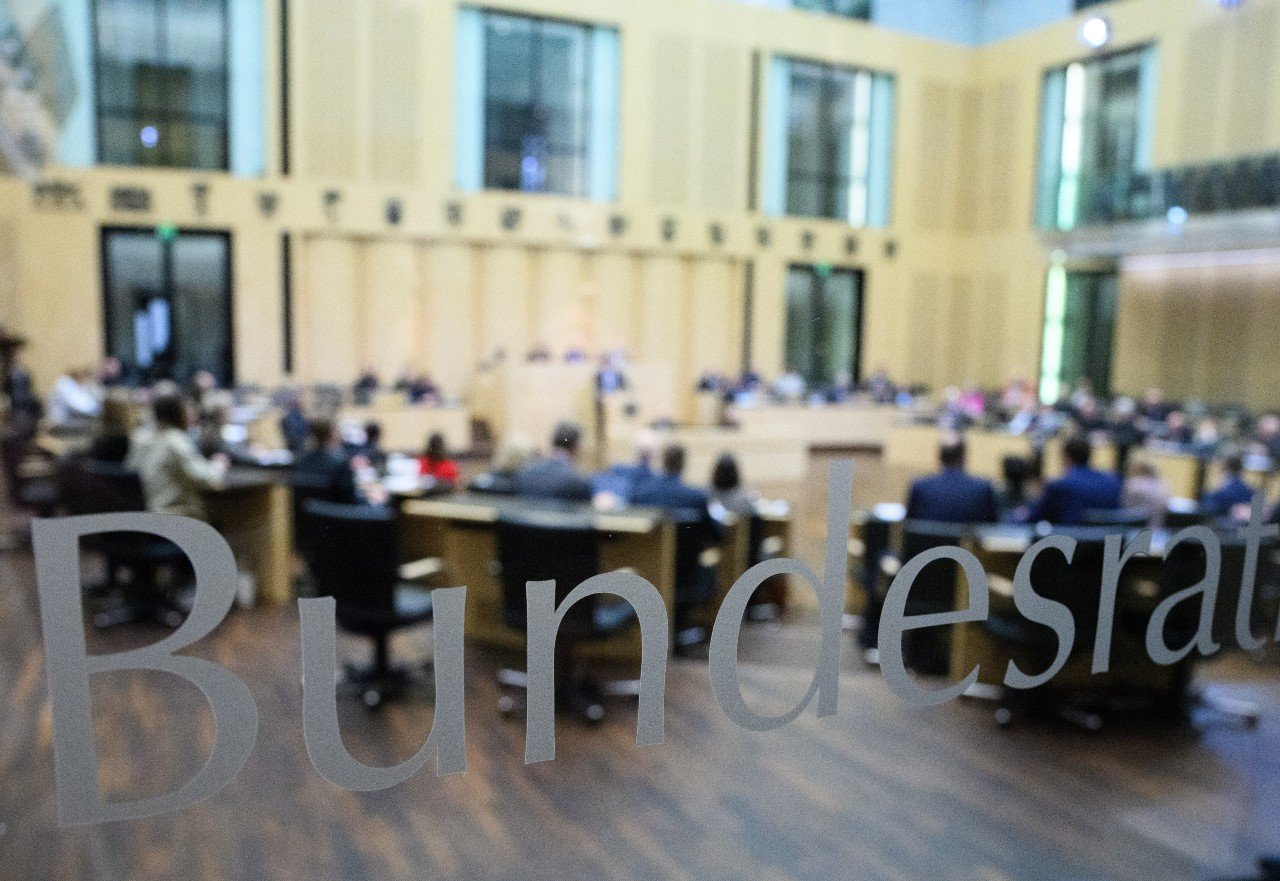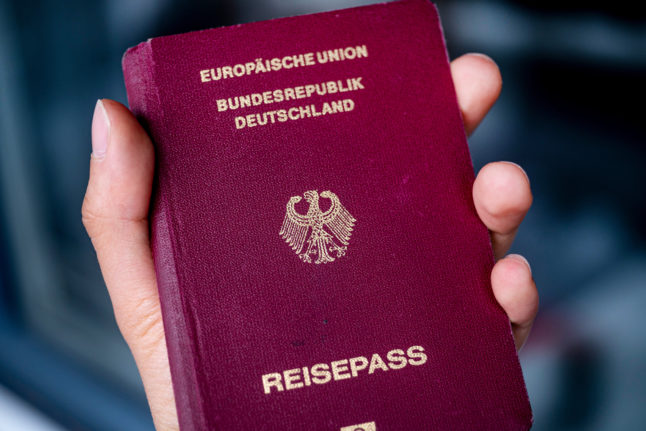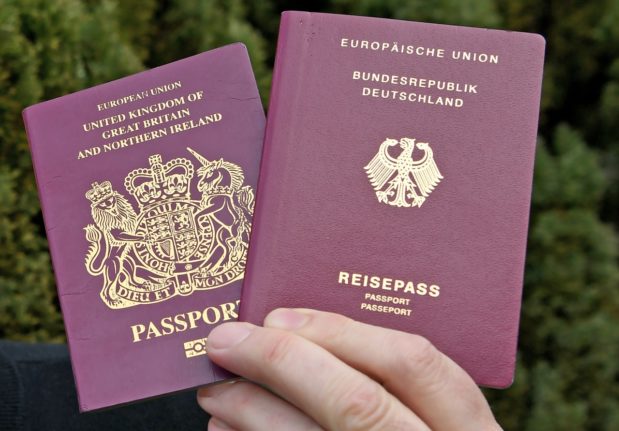The upper house passed the citizenship reform bill, which lays out the right to hold multiple nationalities and reduces waiting times for naturalisation, on Friday morning following an intense debate between Social Democrat (SPD) and Christian Democratic Union (CDU) delegates.
On the SPD side, Malu Dreyer, the state premier for Rhineland-Palatinate, and Mahmut Özdemir, the State Secretary for Internal Affairs, both spoke in favour of law, while CDU politician Thomas Strobl, the Deputy Premier of Baden-Württemberg, spoke against.
“Millions of people in Germany have waited a long time, way too long,” Dreyer told the Bundesrat. “It is a historic reform and it’s important for me to say that it’s long overdue and its special meaning in these times cannot be overstated.”
During his speech, the CDU’s Strobl mentioned how many foreigners wouldn’t have the necessary language skills to naturalise as German after five years, while also pointing out how many of the offices that will handle naturalisation applications are already overwhelmed. He pointed out that applications are already taking years in some states and that even complaints about delayed applications (Untätigskeitklagen) were taking six months to process.
“This isn’t a good start to taking German nationality,” he said.

Shortly before passage, the SPD’s Özdemir said: “By allowing multiple nationality, we no longer make people give up a part of their identity when naturalising. In many countries around the world, this is already standard.”
The vote marks the final stage in a long parliamentary process that has been marred by setbacks, delays, and internal disagreements.
Along the way, ministers within the three-party traffic-light coalition had battled over the details of the law, including whether benefit claimants could naturalise as Germans and how to ensure anti-Semites were barred from citizenship.
KEY POINTS: What you need to know about Germany’s citizenship law reform
But after finalising the bill at the end of last year, the legislation has now been green-lit by both the Bundestag and the Bundesrat, ending months of deliberation and debate.
The citizenship reform is now set to be signed into law by Chancellor Olaf Scholz and President Frank Walter-Steinmeier before entering into force three months later.
READ ALSO: What are the next steps for Germany’s dual citizenship law?
According to a spokesperson from the Federal President’s Office, the President’s constitutional review process will probably take around two weeks, paving the way for the law to come into effect in late May.

‘It’s been an issue for a long time’
Friday’s vote brings to a close a decades-long wait for foreigners in Germany, who have waited with bated breath for the country to end its restrictive policy on dual nationality.
Speaking to The Local after the Bundestag passed the law on January 19th, several foreigners said they were thrilled about the future change in the law.
“If something happened to my family, I need to be able to go home and that may be harder if I gave up my passport,” said Elizabeth, an American senior engineer who has been resident in Germany for 20 years. “I’m excited. It’s been an issue for a long time.”
READ ALSO: Foreigners react as dual citizenship law passes
Speaking to The Local’s Germany in Focus podcast recently, Zeynep Yanasmayan, head of the migration department at the German Centre for Integration and Migration Research, called the law change a “historic moment”.
“I think it’s very, very important and I would go as far to say, which is something that I don’t say that lightly, it is a historic moment in German history when it comes to citizenship legislation, but also in general.”
READ ALSO: Germany’s new citizenship law is ‘historic moment’ for foreign residents in Germany
The change is especially significant for Germany’s Turkish community, many of whom are descended from – or themselves part of – the guest-worker generation who came to Germany in the 1950s and ’60s.
Thanks to the prior ban on dual nationality for non-EU citizens, many members of this community have lived in Germany for several decades while never gaining the right to vote.
“We talk a lot about the so called ‘integration problems’ that people would like to refer to quite often, which I have my doubts on,” says Yanasmayan. “But right now, this law actually made a very open recognition of what these people (guest workers) have sacrificed to build Germany. And I think that also has an impact in terms of the emotional aspect of it.”
READ ALSO:
- EXPLAINED: When and how can I apply for German citizenship?
- CHECKLIST: What do I need to apply for German citizenship under the new law?
- What documents should you get after obtaining German citizenship?
With reporting by Aaron Burnett, Imogen Goodman and Rachel Loxton



 Please whitelist us to continue reading.
Please whitelist us to continue reading.
Member comments